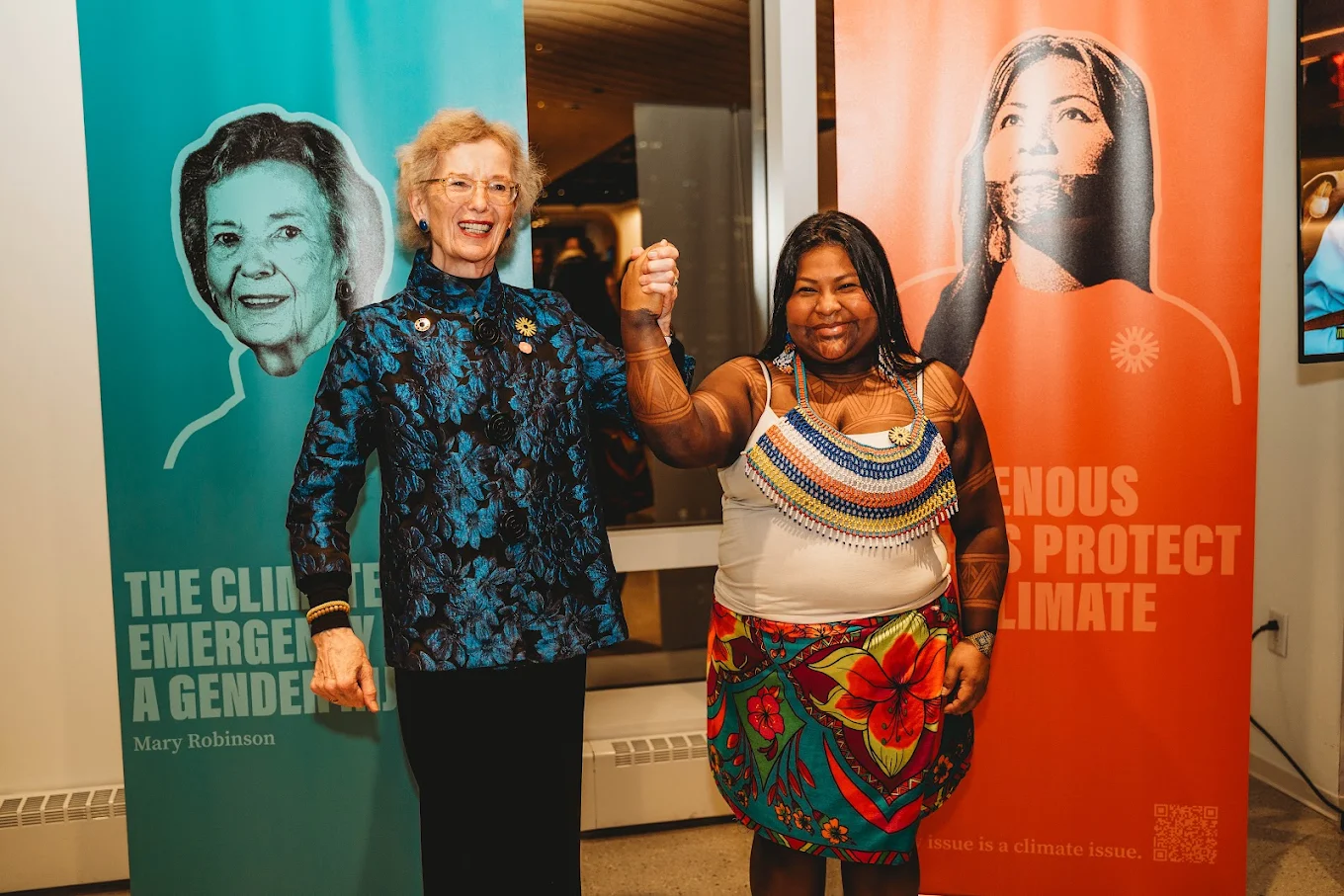From 10 to 21 November 2025, global leaders, scientists, and activists are gathering in Belém, Brazil, for COP30 – the 30th Conference of the Parties, the annual United Nations climate summit convened to assess and advance progress under the UN Framework Convention on Climate Change (UNFCCC).
While negotiations stall and pledges falter, activists, especially women-led movements, are mobilizing from the ground. Among them stands Project Dandelion, a global campaign led by women changemakers determined to seed a new kind of leadership, rooted in resilience, regeneration, and hope.
In her welcome letter, Mary Robinson, former President of Ireland and Co-Founder of Project Dandelion, warns that although we stand “on the cusp of a climate safe world,” we are still “facing a catastrophic climate and nature crisis”. Those least responsible, especially women and girls, are suffering the most.
The challenge, she says, is unity:
Divided we will fail. United we can build a climate-safe future for all.
Inspired by the resilience of the dandelion, the project aims to connect the many strands of the climate justice movement (from youth activists and Indigenous leaders to businesses, artists, and faith communities) under one hopeful symbol of regeneration and persistence.
Working with global partners, Project Dandelion calls for seven urgent shifts: ending fossil fuel subsidies, investing in renewables, financing climate-impacted communities, building resilience, learning from Indigenous knowledge, scaling fair energy access, and elevating women-led solutions. Beyond climate policy, the movement specifically highlights how climate intersects with gender equality, education, child marriage, and women’s rights.
Smallholder Farmers Are Anything But Small
Ahead of COP30, Project Dandelion launched on October 15, 2025 (International Day of Rural Women) the campaign “Smallholder Farmers Are Anything But Small”, a campaign supported by the Gates Foundation, in collaboration with the International Fund for Agricultural Development’s Gender Transformative Mechanism (IFAD).
The message is clear: women smallholder farmers produce a third of the world’s food yet receive less than 1% of climate finance – a $1 trillion missed opportunity.
The campaign turns statistics into stories. In Ethiopia, women’s leadership in irrigation is transforming communities that once struggled with erratic rainfall and poor yields. Supported by IFAD’s Gender Transformative Mechanism, women now hold 25% of leadership positions in local Irrigation Water User Associations, ensuring that water access is equitable and reliable year-round.
The results are tangible: three growing seasons instead of one, higher agricultural productivity, and a more diverse and nutritious food supply that strengthens both families and local economies.

In Maharashtra, India, women farmers are turning depleted land into thriving bamboo plantations: proof that climate adaptation and economic empowerment can go hand in hand. With training, access to saplings, and sustainable farming techniques, they’ve created new livelihoods that are environmentally restorative and financially secure.
Bamboo absorbs up to 45% more carbon dioxide and releases 30% more oxygen than most trees, making it both a profitable and climate-positive crop. These women are reshaping the future of rural economies and redefining what leadership looks like in a warming world.

Through these stories, Project Dandelion reminds us that when women farmers are given the tools to succeed, they multiply impact, advancing food security, and sowing the seeds of a more just and sustainable planet.
The Power of Communication
Project Dandelion’s strategy is as regenerative as its symbol. Recognizing, as Mary Robinson notes, that “we’re too dispersed in our efforts, in our communications,” the campaign seeks to weave those strands together into a shared narrative of action and hope.
Through a powerful social media presence, the campaign invites millions to join through a one-click public pressure tool, urging leaders to “invest where the impact is greatest”. Its message is inclusive, visual, and replicable, encouraging anyone, anywhere, to become part of the change.
One seed, one story, one voice at a time.
Social Media Channels Instagram: @projdandelion | Facebook: @projdandelion | X: @projdandelion | TikTok: @projdandelion | LinkedIn: @projdandelion | BlueSky: @projdandelion.bsky.social
Video Credits Copyright © 2024 Project Dandelion. All rights reserved.
Photo Credits Ethiopia Photography Credit: Eduardo Soteras | India Photography Credit: Anindito Mukherjee

